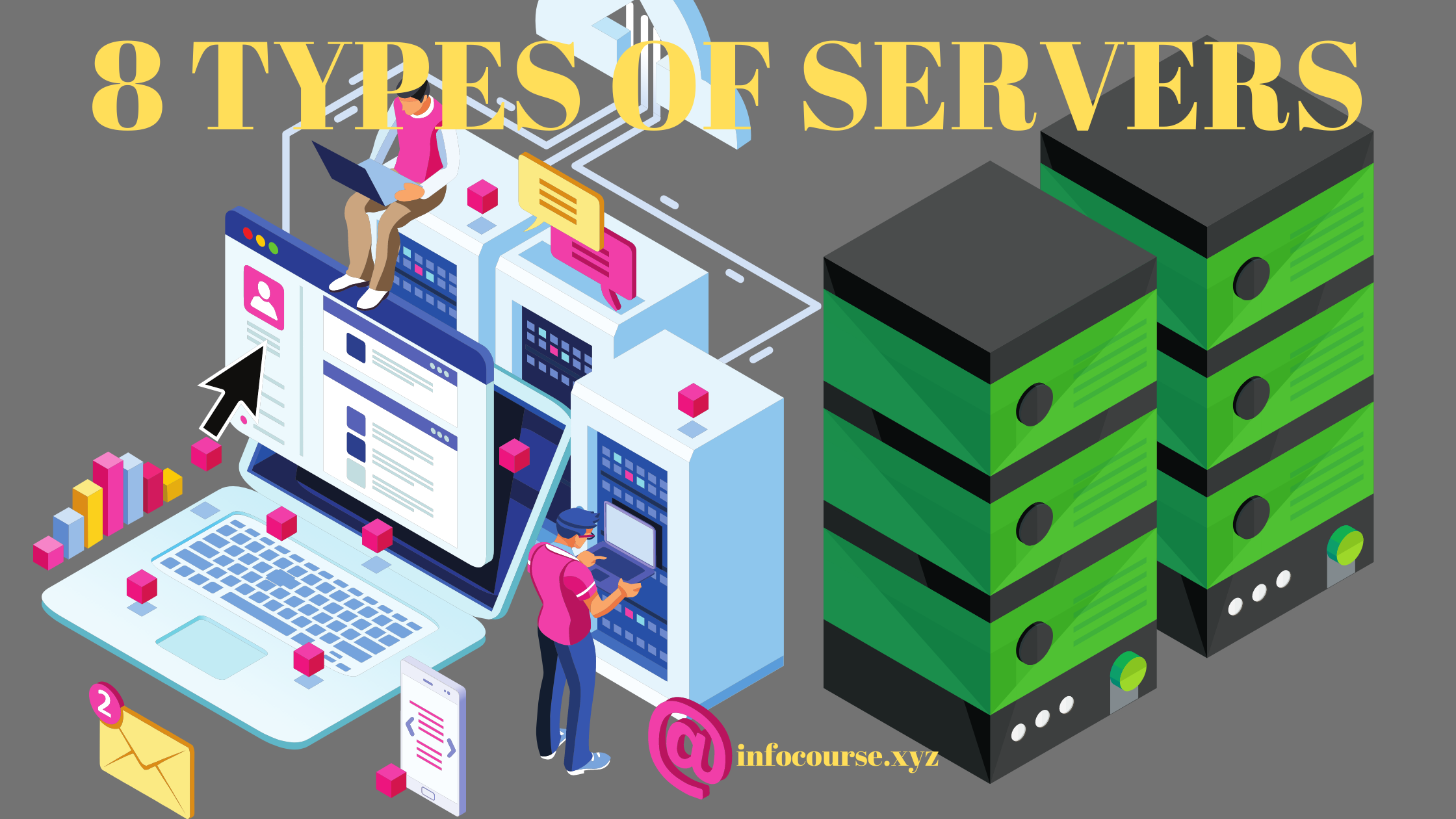8 types of servers

There are 8 types of servers explained in this article
In computer terms, a 'server' is a tool that supports and provides functionality to other devices and programs, commonly referred to as 'clients'. This is the so-called ‘customer-server model’ in a network computer where a single calculation that distributes data, tasks and processes across multiple devices and computer processes. Among the many services offered by servers is sharing resources and data between clients and performing many computer tasks. One client can use multiple retainers and on the other hand one amount can work with multiple clients.
Client-Servers today operate on a ‘response-request’ model where the client needs the work done and sends the request to the one who maintains what the server achieves. A computer designated as 'hardware-class hardware' means that it is a special device for performing server tasks. While the specifics lead to the ideas of larger, more powerful and more reliable devices, in fact, a retainer can be a collection of simple objects.
Servers play a very important role in communicating with people; any malfunctioning storage can bring the connection of all computers to the network. Significant increases in the use of the Internet worldwide have led to the creation of servers for specific tasks. This is something that is always subject to change and we will have to wait and see how the servers will be built for future computational needs.
Servers are categorized according to their functions and usage. Dedicated caregivers do not perform other communication tasks other than the last tasks assigned to them. A server platform is the basis of a software program or software that drives a server; very similar to an app on desktop, laptop or other devices.
Types of servers
• Application Server - these take up a large portion of the network storage amount between the data servers and the end user.
• Server list - improves address list management, newsletters, promotional materials and announcements.
• Chat servers - allow the sharing of information in an online group environment including real-time chat capabilities.
• Fax Servers - used to reduce incoming and outgoing telephone services.
• Groupware servers - help users to work together regardless of where they are on the company's Intranet or the Internet in a visible place.
• Mail Servers - important as a web server to exchange letters on a corporate network over LANs and WANs.
• News servers - these serve as sources for the distribution and delivery of social media groups to the global news board system.
• Proxy Servers - works between a web browser (client system) and a second web server to share communication and improve performance.








